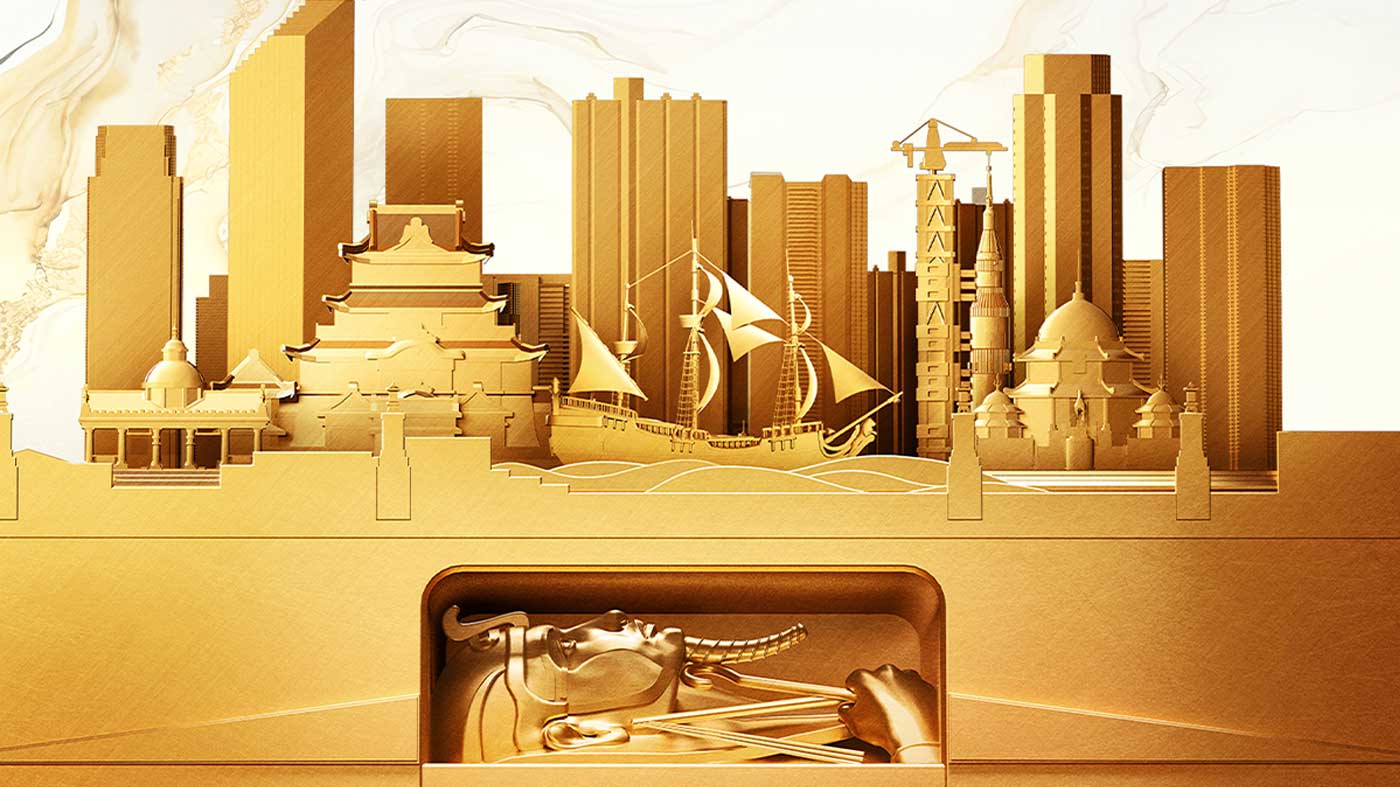Press Start may receive a commission when you buy from links on our site at no extra cost to you.
I had a vision. I’ve always been a Rome guy, though now somewhat lapsed from the heated version of him I was in my early twenties. The closest kinship I’ve ever felt with straight dudes was the Thinking About Rome meme moment a little while back, the deep recesses of my brain dedicated to useless factoids and vague, half-formed romanticisms about the once great empire. Late last year, to some degree of shame on my part, the film Megalopolis (which features a heightened fantasy return to the aesthetics and ideas of Rome in America’s…New Rome) rekindled the interest though and a seed planted by that absurd little movie bloomed as I booted up Civilization VII. It was time for me to be a Rome guy again…a New Rome guy.
If that small insight into my unhinged approach to playing Civilization VII didn’t tip you off, I’m not what you would call a Civy. With only ten odd hours of the PS4 port of Civilization VI to my name, my time with Sid Meier’s iconic historical tactics series is at best intensely casual. Developer Firaxis Games doesn’t seem to mind though as the seventh entry in the decades-spanning franchise seeks to reinvigorate the formula, coaxing new players into the fold while also appeasing veterans with new takes on old systems. It’s an ambitious gambit and if you’re one of those veteran players, it’s worth noting this is likely not the review you’re looking for. My eyes are fresh, my own Megaambitions driven by raw vibes and green fingers, the true depths of Civilization VII’s innovative potential better left to others to discern.
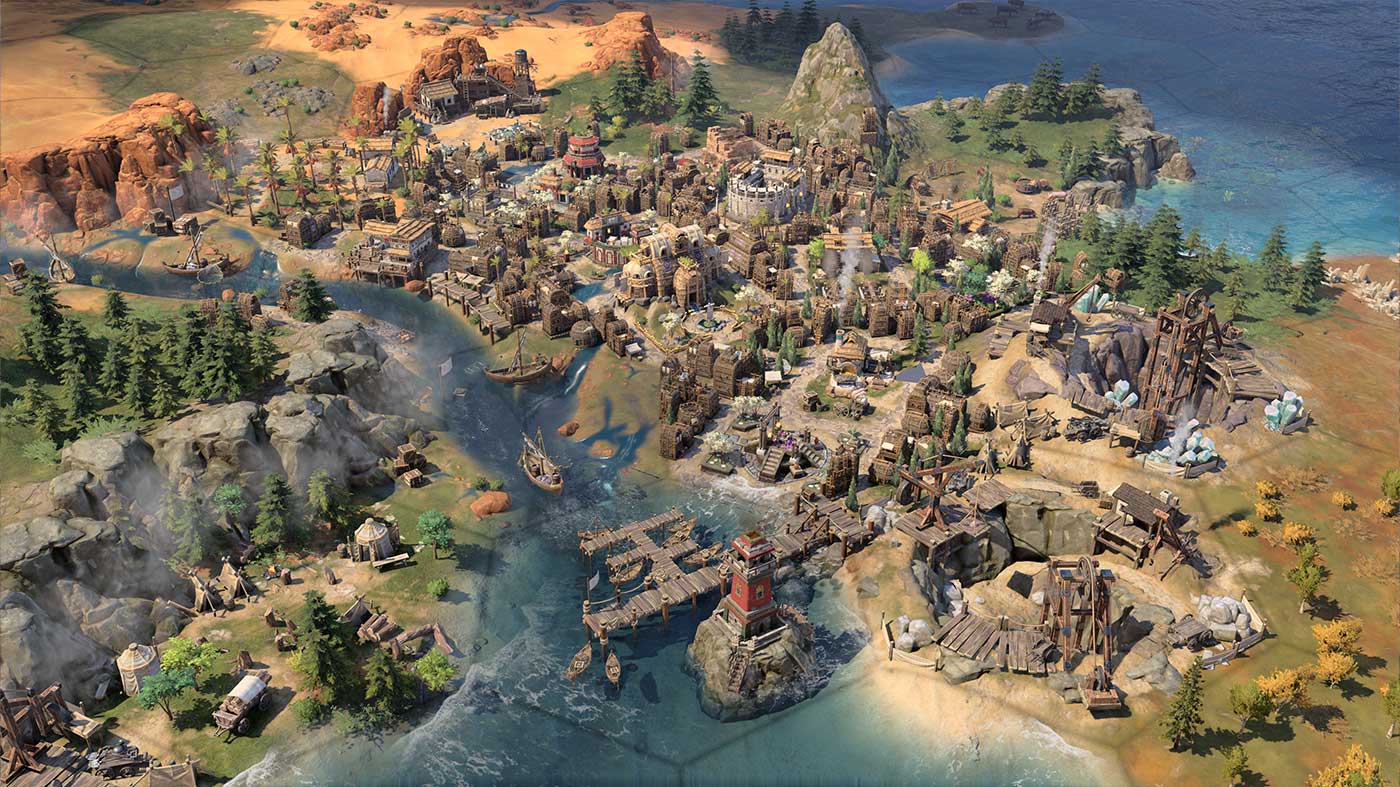
Let the history books reflect that I wanted to be a good man. Gaius Julius Caesar Augustus, my chosen Founder from Civilization VII’s expansive roster of historical figures who you can mix and match with an equally impressive lineup of Empires, was always going to be my guy. Though to Civilization VII’s immediate credit, he really didn’t have to be; any of the Leaders could be attached to my Roman Empire with ease, some sporting baseline bonuses to things like military and production that might even fit a little better with my ultimate goal.
But the Rome Guy pull was too strong and soon enough, Augustus and I had found land and began to plot an empire that the sun could not dare to set on. Civilization VII knows how to set the stage; while my aging gaming PC groaned and sputtered its way through generating my new playground, the game smartly surfaces historical context and summaries of your chosen leader and culture. It’s a neat nugget of real-world goodness before the ahistorical fuckery can begin in earnest.
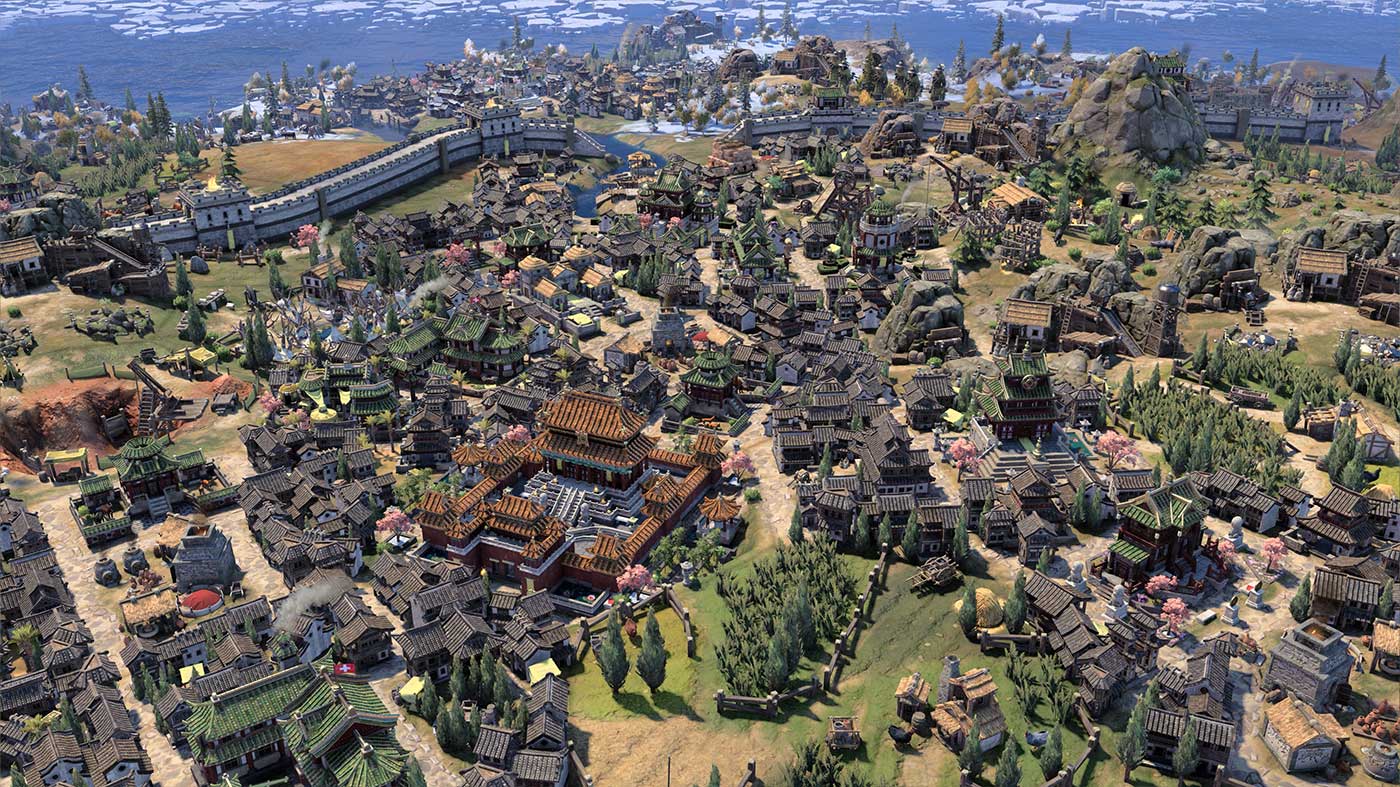
Settling a portion of the coast to the north (my vision for Rome was one of waterfront prosperity and naval domination), Civilization VII begins its excellent new player onboarding. A game played in turns, VII smartly recognises that each one of these is an opportunity to prompt the player with information and suggested actions, somehow never overwhelming or under-informing. Between the guided gameplay opportunities, active advisement of your selected council, and a plethora of unit management streamlining, getting started in Civilization VII is immediately approachable and rewarding. Those early hours are crucial to a game as complex as this and I was quickly comfortable with the basic process of growing my capital and scouting for new settlement opportunities and potential threats. But the whole time you’re learning, or returning for a new take on a run, the game has a ticking clock.
Civilization VII’s overarching new gameplay conceit, that of hardline Ages that you ceaselessly march toward with each move, flips the board in fascinating, uneven ways. Firaxis hasn’t been shy about its decision to implement Ages in an effort to prevent players from stagnating mid-game and failing to complete a full run and in that regard, Ages do at least provide incremental refreshes. Divided between Antiquity, Exploration, and Modern, these tectonic shifts in history serve as soft reboots to the world state, de-escalating conflicts and streamlining units as your civilisation shifts from one to another with a vague handwave of historical accuracy, though your chosen Leader remains.
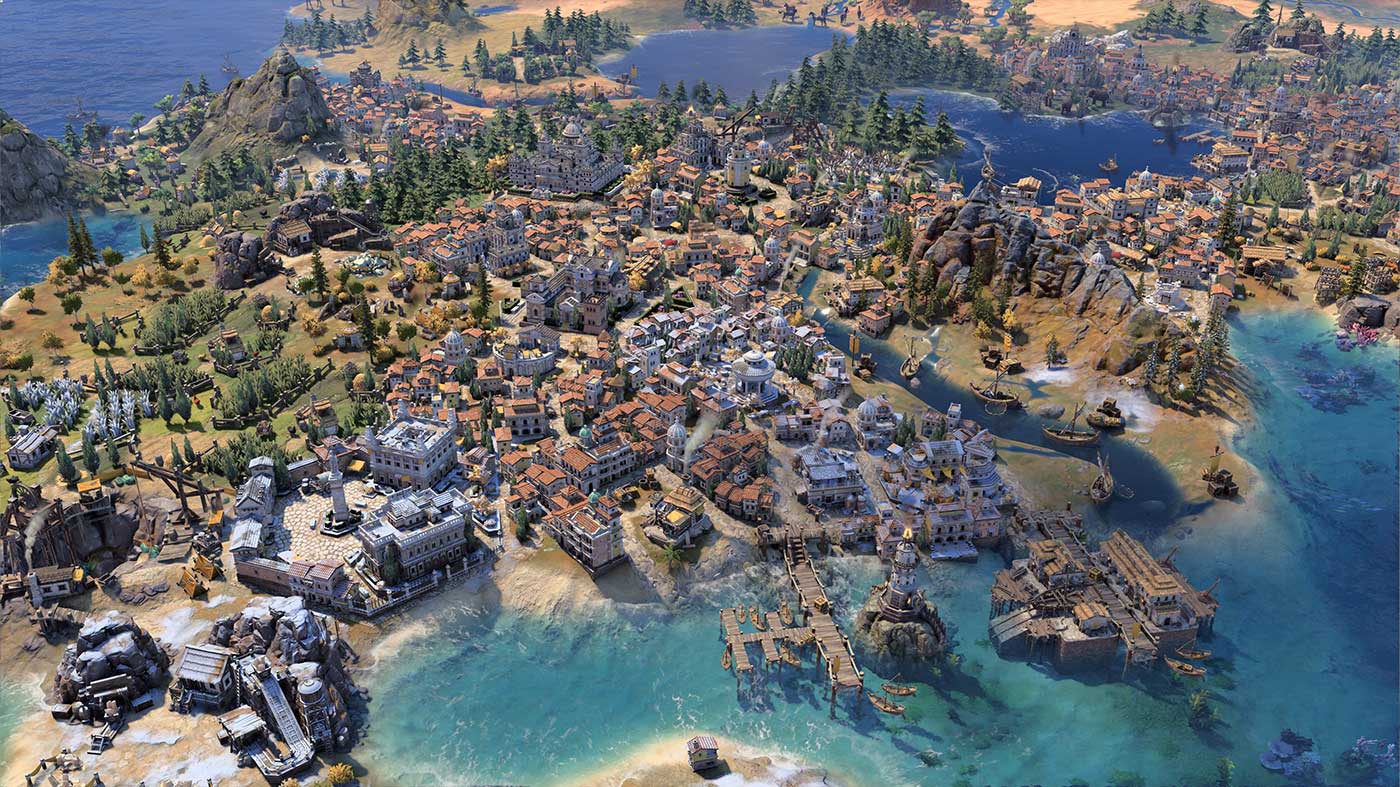
Systemically these demarcated eras of history offer a variety of creature comforts and unique opportunities. Each Age grants access to bespoke units, research trees, and narrative events, all appropriately themed around the current Age and aligned with the game’s overarching commitment to streamlining itself for a new, well, age. My beautiful coastal Roma was beset by a neighbouring power quite early in my first run causing a major societal shift and resource allocation toward militarisation that trickled down far enough to set our scientific efforts back decades. I did say I wanted to be a good man, but with my pride shattered and borders bruised, I became almost singularly focused on raw might. Correctly, my advisors worried we were too primitive a people, fools on the world stage, and while I basked in the glory of my war machines, the turn of the Age allowed a brief catch-up leap so this initial setback to our sciences wouldn’t snowball into late-game issues.
THE CHEAPEST PRICE: $99 WITH FREE SHIPPING FROM AMAZON
When the system works as intended, its checks and balances on run viability and its potential for deeper play is impressive. Each civilisation houses its own perks and unique gameplay possibilities, and far smarter leaders than I will undoubtedly pull together some incredible world powers by stacking civilisations across the Ages and interlocking these traits. Likewise, as a new player almost destined to fall behind the AI (who were broadly fairly good company if occasionally a little erratic in their military strategies) the break in Ages allows time to refamiliarise yourself with the board and your impact on its systems without needing to start a whole new run.
Conversely, the Ages system has a somewhat holistically flattening effect on sustained investment, the effort to keep things fresh likewise halting momentum. There are systems in play to keep continuity between Ages; your civilisation’s Legacy will be reflective of your decision to lean into Science or Culture and so on, the stacking effect of your choices retaining just enough to influence the turn of the Age via points you can invest in trees but never fully define its course if you’ve fallen too far behind in any one area.
But in needing to do a hardline cultural reset at the turn of the Age, I felt as if I had lost something as my Rome was replaced off-screen, continuing in spirit perhaps but without the joy of carrying it through to the modern day. New Rome was, for all intents and purposes, dead, long may it have reigned. Ages are a safety net and a timebomb, the game ticking toward the reset with each turn, the timer in the top left a constant reminder that your choices can be corrected but also effectively discarded soon enough.
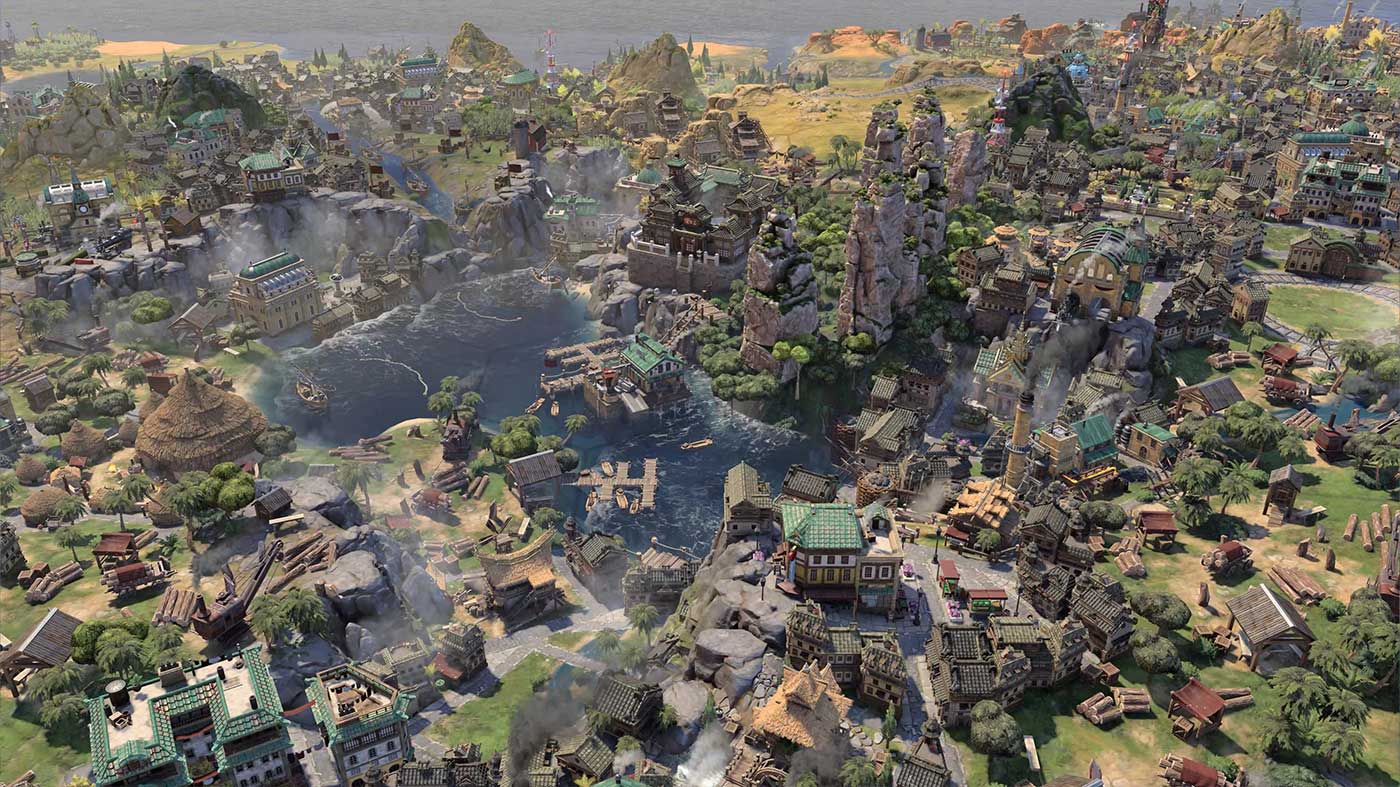
It speaks broadly to Civilization VII’s concerted efforts to streamline its many systems and processes, ostensibly giving the player back a sense of ease and access as it mitigates long-running series frustrations but potentially births new ones. Military units, for example, can now be bunched together under a high-profile Commander and subsequently moved as a single entity, sharing all experience into a unified promotion tree. These Commanders are also Ageless, allowing them to exist beyond the turn of the Age and ensuring the time you’ve invested in building out the unit to be better at flanking or a passive healer isn’t wasted. It’s convenient, it’s fun, it’s perhaps a little too smooth.
Civilization VII’s almost singular focus on streamlined revisions is at its most forceful with inter-empire relations. Encountering other civilisations and the variety of colourful historical figures who lead them is a constant source of both tension and delight in Civilization, the discovery of a foreign border and or envoy just as likely to be the beginning of history’s greatest love affair as it is the first domino of war. Or at least that’s how it feels, my inclinations to heavily roleplay or romanticise these interactions a core part of my enjoyment that VII somewhat clumsily reduces down to a literal currency.
Influence is a resource pooled from certain structures and actions and is spent in turn to engage in diplomatic activities meant to either reinforce or weaken your ties with another civilisation. Starting small with open borders and culture exchanges, you’ll eventually build your inter-empire relationships to more complicated exchanges or even engage in espionage to steal secrets from friend and foe alike. Much like the narrative events that are sprinkled throughout your run, each of these actions is at least written in such a way as to inspire some fun roleplaying but when everything is handled with a currency, the raw gamification of this social system is a little cool to the touch.
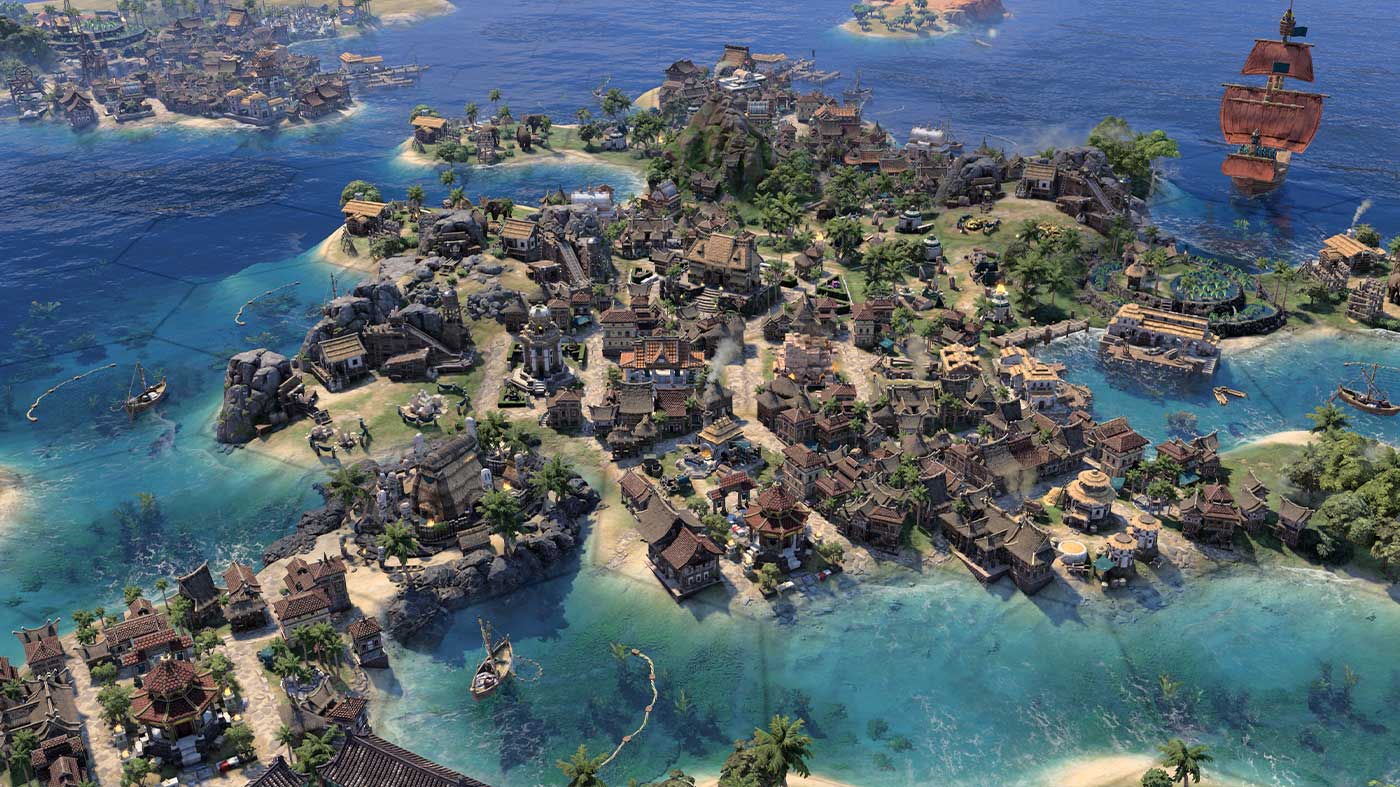
It makes sense, yet another choice in the countless made to ensure you never get too frustrated or lost in VII, but it also runs soft interference on player-driven storytelling to lay such a system so bare. Ages are marked with global Crisis moments, massive narrative events that require extensive responses from your empire to navigate, worsening every few turns until the climax of the Crisis hits and the Age can end. My Rome, already struggling with sciences, was hit by a plague, all my social policies distinctly unprepared for such an event and for a moment the thorniness of that tight spot gave Civilization VII some real bite. I might be able to pull the camera back and watch the world turn like a god, but I still want to feel some danger. Higher difficulties would mitigate this of course, but as a new player, the baseline normal experience was only occasionally truly thrilling.
But that god-like perspective on the world sure was a sight. Civilization VII has rolled back the overtly cartoonish art direction of VI and landed on a happy middle ground between stylised and realistic, rendering every unit to every plain in a gorgeous new aesthetic. The environmental work alone is captivating, each of the game’s hexagonal tiles home to some assortment of natural marvels or mundanely perfect plot of land. Zooming all the way in and watching your settlers navigate mountains and rivers is a constant delight, one experienced tenfold in bustling city streets and blossoming townships. Matched with a crisp and legible UI that would only occasionally hiccup, the game is consistently and smartly damn pleasant to look at for hours on end.
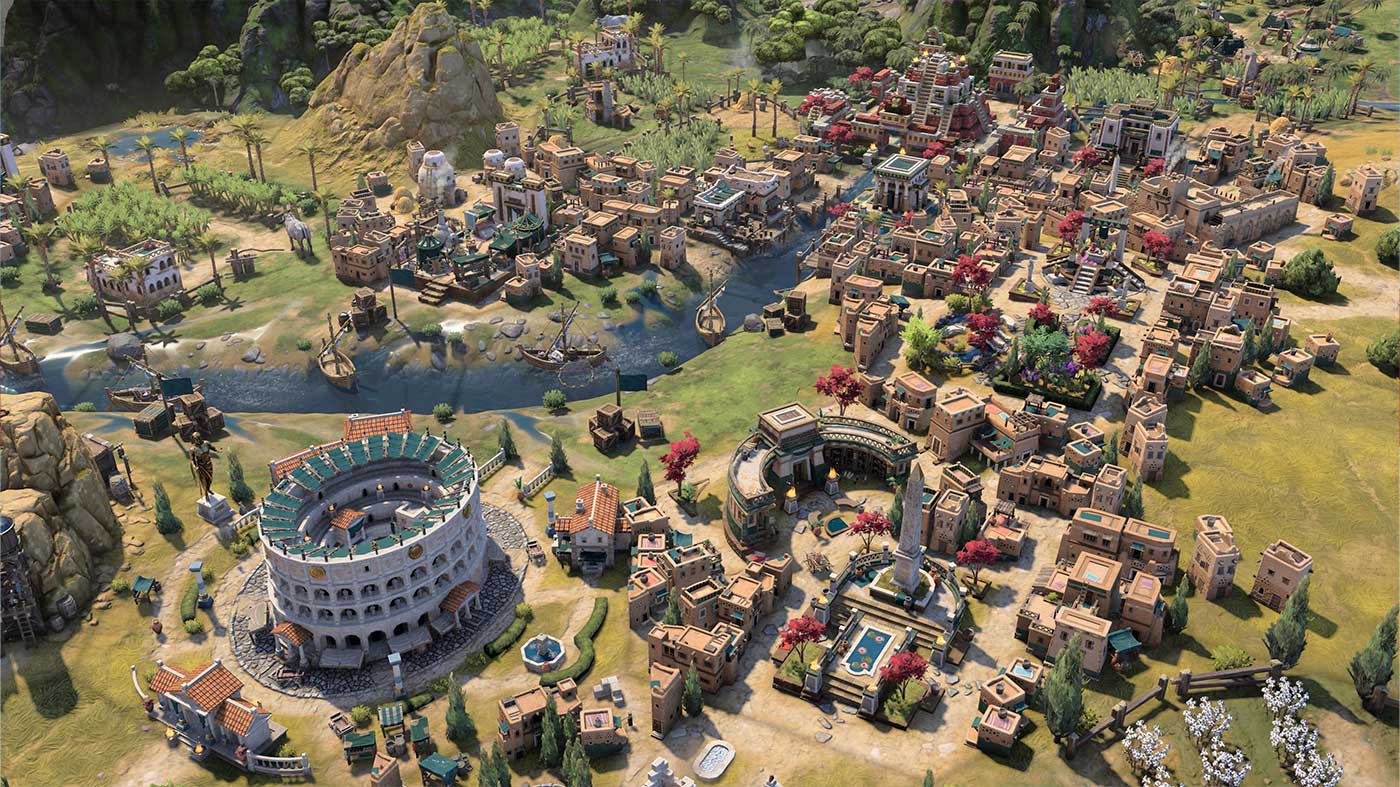
While some systemic choices hampered my roleplaying goals more than I’d like, they’ve undeniably turned Civilization VII into a far more approachable, and digestible, game. Much like my time with VI before it, I found it remarkably easy to slip into a comfort zone with VII, each turn a new opportunity to explore or system to gently poke at with curiosity and caution. In streamlining itself for a new age, Civilization VII is as welcome an experience a new player could ask for, though its incentives for deeper, extended play are somewhat hampered by its eager attempts to make everything as smooth as possible.
I still dream of New Rome, and with the inevitable slate of DLC and updates Firaxis has planned for Civilization VII I hope to one day return and raise it anew. The desire for just one more turn on the board still a series mainstay after al



